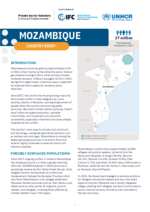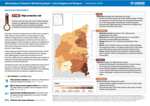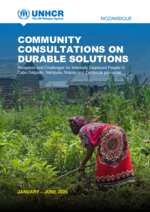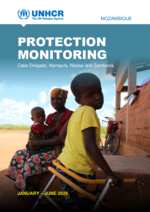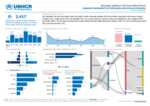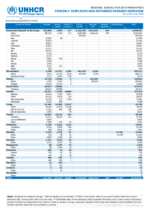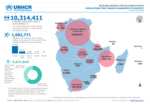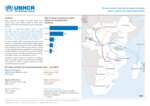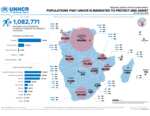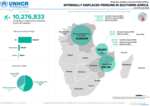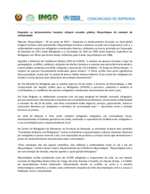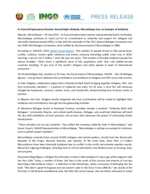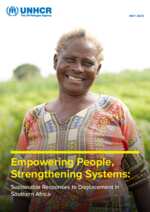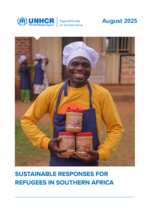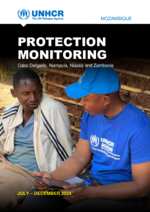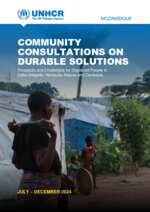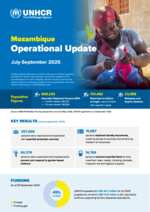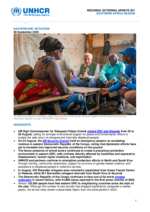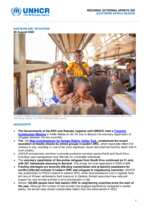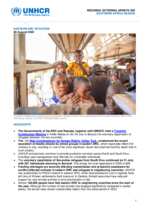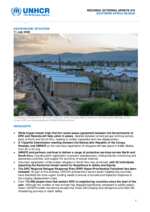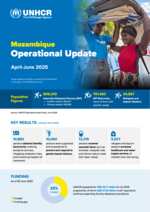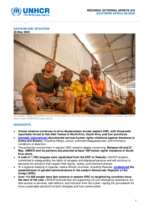| Country of origin | Source | Data date | Population | |
|---|---|---|---|---|
| Dem. Rep. of the Congo | Government, UNHCR | 31 Jul 2025 | 38.4% | 9,190 |
| Burundi | Government, UNHCR | 31 Jul 2025 | 35.3% | 8,454 |
| Rwanda | Government, UNHCR | 31 Jul 2025 | 14.6% | 3,500 |
| Somalia | Government, UNHCR | 31 Jul 2025 | 9.4% | 2,263 |
| Côte d'Ivoire | Government, UNHCR | 31 Jul 2025 | 1.7% | 413 |
| Others | Government, UNHCR | 31 Jul 2025 | 0.6% | 135 |
- All Documents (359)
- COVID-19 (3)
- Communication with Communities (4)
- Dashboards & Factsheets (156)
- Flash Update (1)
- Funding (8)
- Maps and geodata (57)
- National Refugee Response Plans (4)
- Population Profiling (1)
- Press Releases (2)
- Regional RRP Documents (2)
- Regional Response Plans (3)
- Reports (96)
- Reports and Assessments (11)
- Site Profiles (2)
- Situation Reports (1)
- Situation Reports / Updates (86)
- Situation Updates (4)
- Strategy Documents (1)
- Training Materials (1)
- Updates (46)
- Not categorized (1)
- All Documents (359)
- COVID-19 (3)
- Communication with Communities (4)
- Dashboards & Factsheets (156)
- Flash Update (1)
- Funding (8)
- Maps and geodata (57)
- National Refugee Response Plans (4)
- Population Profiling (1)
- Press Releases (2)
- Regional RRP Documents (2)
- Regional Response Plans (3)
- Reports (96)
- Reports and Assessments (11)
- Site Profiles (2)
- Situation Reports (1)
- Situation Reports / Updates (86)
- Situation Updates (4)
- Strategy Documents (1)
- Training Materials (1)
- Updates (46)
- Not categorized (1)
Country Brief: Mozambique | Private Sector Solutions in Forced Displacement
DocumentCreate date: 29 January 2026 (1 month ago)
Mozambique Protection Monitoring Report - Cabo Delgado and Nampula (November 2025)
DocumentCreate date: 29 January 2026 (1 month ago)
Community Consultations on Durable Solutions - Cabo Delgado, Nampula, Niassa and Zambezia (January-June 2025)
DocumentCreate date: 30 January 2026 (1 month ago)
Protection Monitoring Report - Cabo Delgado, Nampula, Niassa and Zambezia (January – June 2025)
DocumentCreate date: 29 January 2026 (1 month ago)
Overview of onward movements in the Southern Africa Region - June 2025
DocumentCreate date: 30 September 2025 (5 months ago)
Comprehensive regional analysis of the UNHCR’s population by asylum country and location - June 2025
DocumentCreate date: 30 September 2025 (5 months ago)
Overview of the UNHCR population in Southern Africa - June 2025
DocumentCreate date: 30 September 2025 (5 months ago)
UNHCR Mozambique Covid Impact Survey Sep 2020
DocumentCreate date: 29 January 2021 (5 years ago)
Nota de Orientação do Cluster de Proteção de Moçambique sobre Prevenção e Mitigação do COVID-19
DocumentCreate date: 6 April 2020 (5 years ago)
Mozambique Protection Cluster’s Guidance Note on Prevention and Mitigation of COVID-19
DocumentCreate date: 6 April 2020 (5 years ago)
ACNUR Consultas Comunitárias sobre Soluções Duradouras. Perspectivas e desafios para as pessoas deslocadas no Norte de Moçambique - Janeiro-...
DocumentCreate date: 10 February 2025 (1 year ago)
UNHCR Community Consultations on Durable Solutions. Prospects & Challenges for Displaced People in Northern Mozambique - January-June 2024
DocumentCreate date: 10 February 2025 (1 year ago)
UNHCR Mozambique - Cabo Delgado: Protection Monitoring - January-June 2024
DocumentCreate date: 10 February 2025 (1 year ago)
UNHCR Mozambique - Cabo Delgado, Chiure district: Protection Monitoring report - March-April 2024
DocumentCreate date: 10 February 2025 (1 year ago)
Country Brief: Mozambique | Private Sector Solutions in Forced Displacement
DocumentCreate date: 29 January 2026 (1 month ago)
Overview of onward movements in the Southern Africa Region - June 2025
DocumentCreate date: 30 September 2025 (5 months ago)
Comprehensive regional analysis of the UNHCR’s population by asylum country and location - June 2025
DocumentCreate date: 30 September 2025 (5 months ago)
Overview of the UNHCR population in Southern Africa - June 2025
DocumentCreate date: 30 September 2025 (5 months ago)
The most common routes used by refugees and asylum-seekers in 2025 in Southern Africa - June 2025
DocumentCreate date: 30 September 2025 (5 months ago)
Overview of refugees, asylum-seekers, and others of concern in Southern Africa - June 2025
DocumentCreate date: 30 September 2025 (5 months ago)
Internally displaced persons (IDPs) in the Southern Africa Region - June 2025
DocumentCreate date: 30 September 2025 (5 months ago)
Mozambique Cyclone Chido Flash Update - 19 December 2024
DocumentCreate date: 10 February 2025 (1 year ago)
Mozambique Tropical Cyclones Flash Appeal - January-June 2025 (updated in February 2025)
DocumentCreate date: 12 February 2025 (1 year ago)
Mozambique Funding Update 31 December 2024
DocumentCreate date: 10 February 2025 (1 year ago)
UNHCR Mozambique Flash Appeal - Response to Cyclones Chido and Dikeledi: Critical Needs - 30 January 2025
DocumentCreate date: 10 February 2025 (1 year ago)
Mozambique Tropical Cyclone Chido Flash Appeal - January-June 2025
DocumentCreate date: 10 February 2025 (1 year ago)
Mozambique Funding Update 31 December 2023
DocumentCreate date: 10 February 2025 (1 year ago)
UNHCR Mozambique Funding Update Jan 2021
DocumentCreate date: 29 January 2021 (5 years ago)
UNHCR Mozambique Cabo Delgado Urgent Funding Needs Nov 2020
DocumentCreate date: 29 January 2021 (5 years ago)
UNHCR Mozambique - Operational Presence in Cabo Delgado - March 2025
DocumentCreate date: 11 March 2025 (11 months ago)
Mozambique Situation: Post-Election Regional Displacement - Dashboard - as of 17 February 2025
DocumentCreate date: 20 February 2025 (1 year ago)
Southern Africa - Reference Map - A3L - October 2024
DocumentCreate date: 26 November 2024 (1 year ago)
Mozambique - Reference Map - A4P - 11 November 2024
DocumentCreate date: 11 November 2024 (1 year ago)
Mozambique - Reference Map - A3P - 11 November 2024
DocumentCreate date: 11 November 2024 (1 year ago)
UNHCR Mozambique - Operational Presence in Cabo Delgado - September 2024
DocumentCreate date: 10 February 2025 (1 year ago)
UNHCR Mozambique - Operational Presence in Cabo Delgado - March 2024
DocumentCreate date: 10 February 2025 (1 year ago)
Mozambique Humanitarian Needs and Response Plan 2025
DocumentCreate date: 10 February 2025 (1 year ago)
Moçambique Necessidades Humanitárias e Plano de Resposta 2024 (POR)
DocumentCreate date: 10 February 2025 (1 year ago)
Mozambique Humanitarian Needs and Response Plan 2024 (ENG)
DocumentCreate date: 10 February 2025 (1 year ago)
UNHCR Mozambique Eloise Response Operational Partners Jan 2021
DocumentCreate date: 29 January 2021 (5 years ago)
June Regional Population Data Analysis for Southern Africa - June 2024
DocumentCreate date: 20 February 2025 (1 year ago)
Enquanto os deslocamentos forçados atingem recordes globais, Moçambique dá exemplo de solidariedade - 20 June 2025
DocumentCreate date: 23 June 2025 (8 months ago)
As Forced Displacement Reaches Record Highs Globally, Mozambique Sets an Example of Solidarity - 20 June 2025
DocumentCreate date: 23 June 2025 (8 months ago)
DRC 2019-2020 RRRP At A Glance - fr
DocumentCreate date: 12 December 2018 (7 years ago)
DRC 2019-2020 RRRP At A Glance - en
DocumentCreate date: 12 December 2018 (7 years ago)
The Democratic Republic of Congo Regional Refugee Response Plan (RRRP) 2019-2020 - Revised in June 2019
DocumentCreate date: 30 June 2019 (6 years ago)
The Democratic Republic of Congo Regional Refugee Response Plan (RRRP) 2019-2020
DocumentCreate date: 11 December 2018 (7 years ago)
Democratic Republic of Congo Regional Refugee Response Plan (RRRP) 2018 - Revised in May 2018
DocumentCreate date: 17 July 2018 (7 years ago)
Mozambique Protection Monitoring Report - Cabo Delgado and Nampula (November 2025)
DocumentCreate date: 29 January 2026 (1 month ago)
UNHCR Report - Empowering People, Strengthening Digital Systems
DocumentCreate date: 19 June 2025 (8 months ago)
UNHCR Cabo Delgado External Update - October 2023 (ENG)
DocumentCreate date: 8 January 2024 (2 years ago)
UNHCR Mozambique Operational Update _August 2023 ENG
DocumentCreate date: 18 September 2023 (2 years ago)
UNHCR Mozambique Cabo Delgado IDP Response _July 2023 POR
DocumentCreate date: 18 September 2023 (2 years ago)
UNHCR Mozambique Cabo Delgado IDP Response _July 2023 ENG
DocumentCreate date: 18 September 2023 (2 years ago)
UNHCR Mozambique Cabo Delgado IDP Response _June 2023 ENG
DocumentCreate date: 18 September 2023 (2 years ago)
Community Consultations on Durable Solutions - Cabo Delgado, Nampula, Niassa and Zambezia (January-June 2025)
DocumentCreate date: 30 January 2026 (1 month ago)
Protection Monitoring Report - Cabo Delgado, Nampula, Niassa and Zambezia (January – June 2025)
DocumentCreate date: 29 January 2026 (1 month ago)
Sustainable Responses for Refugees in SOUTHERN AFRICA - Aug 2025
DocumentCreate date: 4 September 2025 (5 months ago)
Protection Monitoring Report - Cabo Delgado, Nampula, Niassa and Zambezia (July – December 2024)
DocumentCreate date: 29 January 2026 (1 month ago)
Community Consultations on Durable Solutions - Cabo Delgado, Nampula, Niassa and Zambezia (July – December 2024)
DocumentCreate date: 30 January 2026 (1 month ago)
ACNUR Consultas Comunitárias sobre Soluções Duradouras. Perspectivas e desafios para as pessoas deslocadas no Norte de Moçambique - Janeiro-...
DocumentCreate date: 10 February 2025 (1 year ago)
UNHCR Community Consultations on Durable Solutions. Prospects & Challenges for Displaced People in Northern Mozambique - January-June 2024
DocumentCreate date: 10 February 2025 (1 year ago)
Protection monitoring report #07 - 19 April 2019
DocumentCreate date: 24 April 2019 (6 years ago)
Protection monitoring report #4
DocumentCreate date: 24 April 2019 (6 years ago)
UNHCR Mozambique Update on Cabo Delgado situation 15 Dec 20 - 15 Jan 21
DocumentCreate date: 28 January 2021 (5 years ago)
UNHCR Mozambique Operational Update - July-September 2025
DocumentCreate date: 12 January 2026 (1 month ago)
DRC Situation External Update #21 - 8-Sep-2025
DocumentCreate date: 29 September 2025 (5 months ago)
DRC Situation External Update #20 - 8-Aug-2025
DocumentCreate date: 12 August 2025 (6 months ago)
DRC Situation External Update #20 - 8-Aug-2025
DocumentCreate date: 12 August 2025 (6 months ago)
DRC Situation External Update #19 - 11 Jun 2025
DocumentCreate date: 14 July 2025 (7 months ago)
UNHCR Mozambique Operational Update - April-June2025
DocumentCreate date: 10 September 2025 (5 months ago)
DRC Situation External Update #16 - 29 May 2025
DocumentCreate date: 30 May 2025 (9 months ago)
UNHCR Mozambique Operational Highlights Northern Mozambique 8 September 2021
DocumentCreate date: 27 September 2021 (4 years ago)
Mozambique Operational Update
DocumentCreate date: 22 June 2020 (5 years ago)
MOZAMBIQUE - UPDATE
DocumentCreate date: 1 April 2020 (5 years ago)
UNHCR Tropical Cyclone Idai Update May 2019
DocumentCreate date: 12 April 2019 (6 years ago)
Global Protection Cluster Mozambique Strategy December 2020
DocumentCreate date: 29 January 2021 (5 years ago)
EXTENSAO da data limite para entrega de candidaturas, 17 de Novembro! Chamada à participação - Curso sobre apatridia e o direito à nacionali...
DocumentCreate date: 24 October 2017 (8 years ago)
UNHCR Cabo Delgado External Update - October 2023 (ENG)
DocumentCreate date: 8 January 2024 (2 years ago)
UNHCR Mozambique Operational Update _August 2023 ENG
DocumentCreate date: 18 September 2023 (2 years ago)
UNHCR Mozambique Cabo Delgado IDP Response _July 2023 POR
DocumentCreate date: 18 September 2023 (2 years ago)
UNHCR Mozambique Cabo Delgado IDP Response _July 2023 ENG
DocumentCreate date: 18 September 2023 (2 years ago)
UNHCR Mozambique Cabo Delgado IDP Response _June 2023 ENG
DocumentCreate date: 18 September 2023 (2 years ago)
UNHCR Mozambique Cabo Delgado IDP Response _June 2023 POR
DocumentCreate date: 18 September 2023 (2 years ago)
UNHCR Mozambique Cabo Delgado IDP Response _May 2023 POR
DocumentCreate date: 12 July 2023 (2 years ago)
Protection monitoring report #3
DocumentCreate date: 24 April 2019 (6 years ago)

ACNUR alerta para "mudança" nos ataques a Cabo Delgado e pede mais fundos para ajudar deslocados
RFI - UNHCR, 05 Jun 2025
Em Moçambique, 25.000 pessoas foram recentemente obrigadas a sair de regiões que até agora estavam salvaguardadas face aos ataques terroristas em Cabo Delgado, comprovando não só o aumento da violência nesta província, mas o alargamento da acção dos terroristas a novas áreas. Em entrevista à RFI, Is... Read more

UNHCR: New displacement and funding squeeze intensify Mozambique crisis
UNHCR Briefing Notes, 23 May 2025
GENEVA – Over 25,000 people have been newly displaced in Mozambique in a matter of weeks. They join close to 1.3 million people who have been uprooted by the armed conflict, back-to-back cyclones and drought. With critical funding running out, UNHCR, the UN Refugee Agency, like other humanitarian ac... Read more

Funding cuts threaten support for displaced women affected by violence in Mozambique
UNHCR Stories, 23 May 2025
Conflict and extreme weather are forcing more people from their homes in Cabo Delgado Province, exposing women to sexual violence and other threats as funds to meet their needs run dry. Read more

Climate change, conflict and political unrest: Mozambique’s triple crisis explained
UNHCR Stories, 17 Jan 2025
A convergence of crises in Mozambique is forcing people to flee their homes, often multiple times, and complicating efforts to assist them. Read more

Thousands displaced as post-election unrest grips Mozambique
UNHCR Press Releases, 31 Dec 2024
Post-election unrest in Mozambique has forced thousands of people to flee their homes. In Malawi, UNHCR, the UN Refugee Agency, and the government have identified around 2,000 who crossed into the country in the past week. In neighbouring Eswatini, another 1,000 people have arrived. Amongst the new ... Read more

Cyclone Chido leaves a trail of destruction in Mozambique and beyond, displacing thousands
UNHCR Briefing Notes, 17 Dec 2024
Tropical Cyclone Chido struck northern Mozambique over the weekend, bringing torrential rains and powerful winds that devastated communities in Cabo Delgado and Nampula provinces. The storm destroyed homes, displaced thousands, and severely damaged roads and communication networks, hampering relief ... Read more
| Mozambique Protection Cluster | |
| Mozambique Protection Cluster on ReliefWeb Response | |
| UNHCR Global Focus - Mozambique | |
| UNHCR Mozambique on Facebook | |
| UNHCR Mozambique on X (Twitter) | |
| UNHCR Southern Africa on Facebook | |
JSON
| Date of Funding Data | 31 January 2026 (1 month ago) |
-
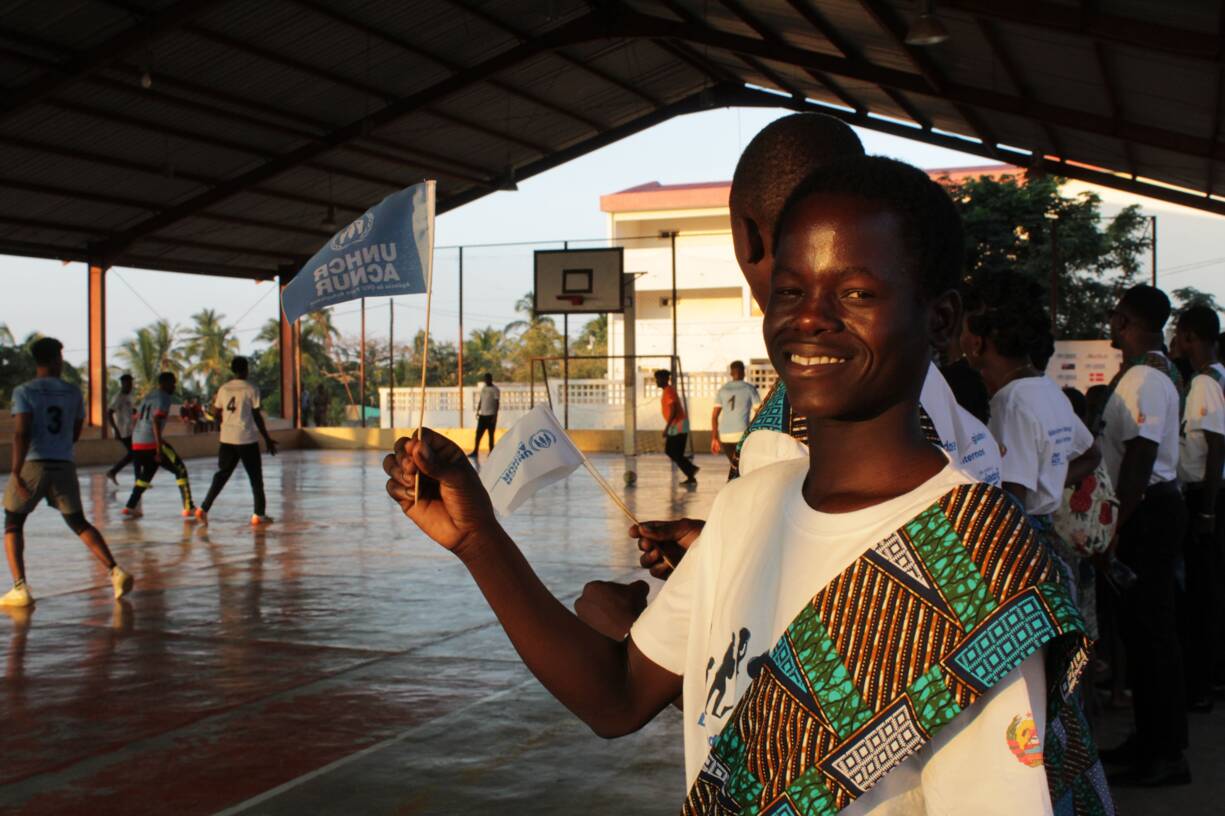
Refugees, IDPs and host community celebrate World Refugee Day together in Cabo Delgado
©UNHCR/Isadora Zoni, 20 June 2025 -
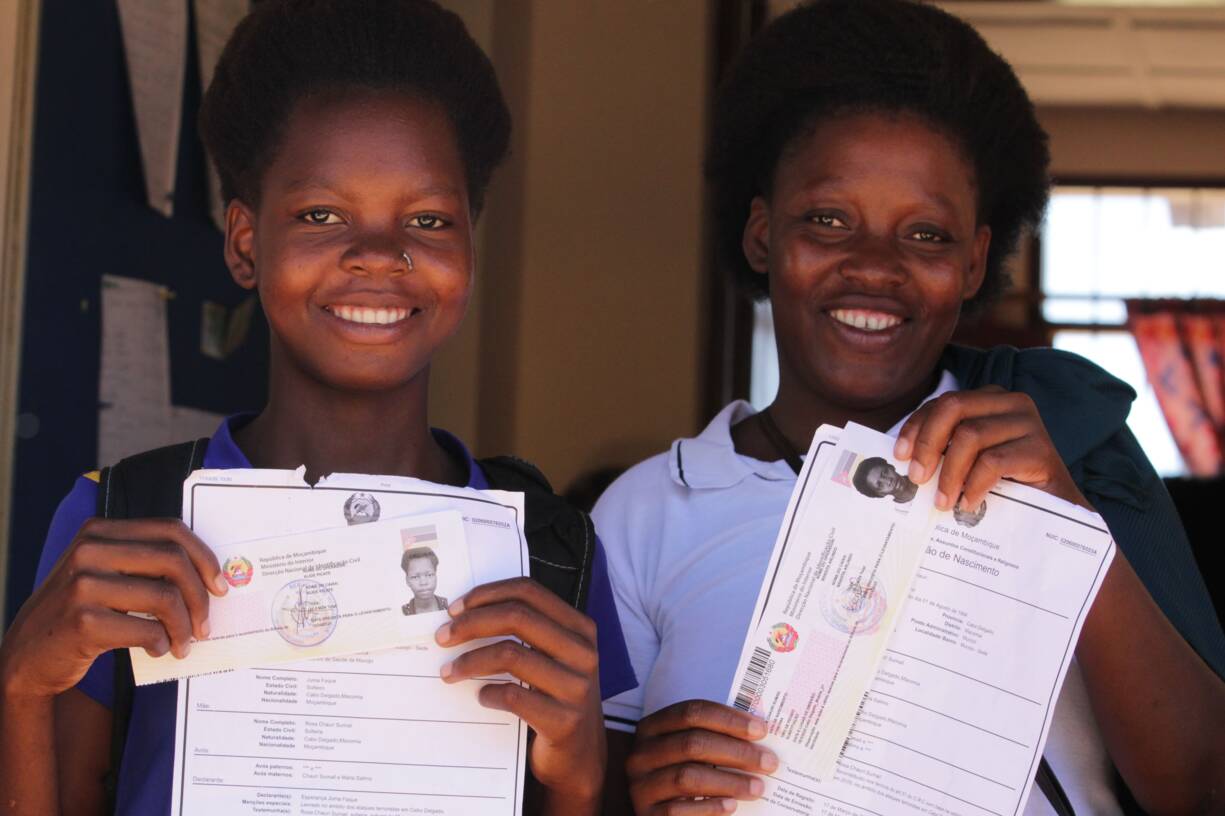
Mother and daughter displaced from Macomia recover their documentation supported by UNHCR legal caravan in Cabo Delgado
©UNHCR/Isadora Zoni, 2025 -
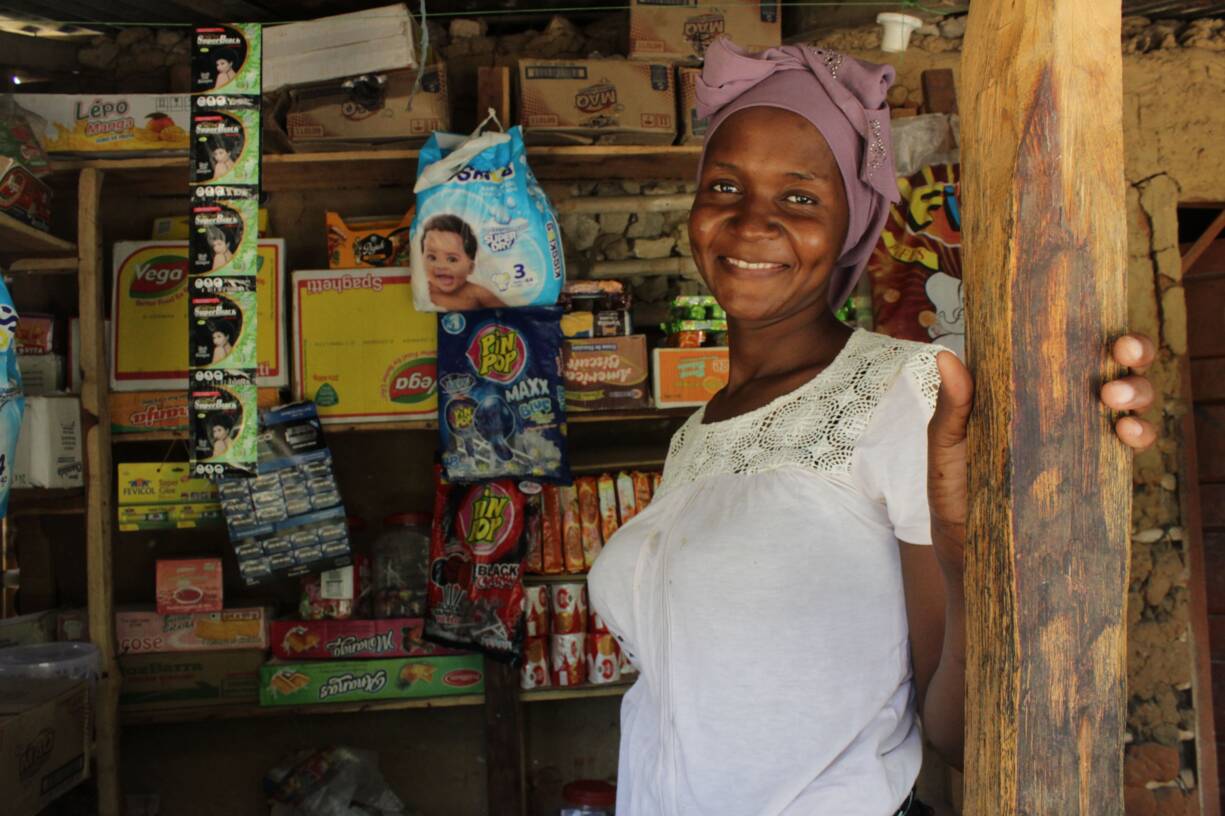
IDP from Macomia participates in business training and received support to run her own business in Pemba
©UNHCR/Isadora Zoni, 2025 -
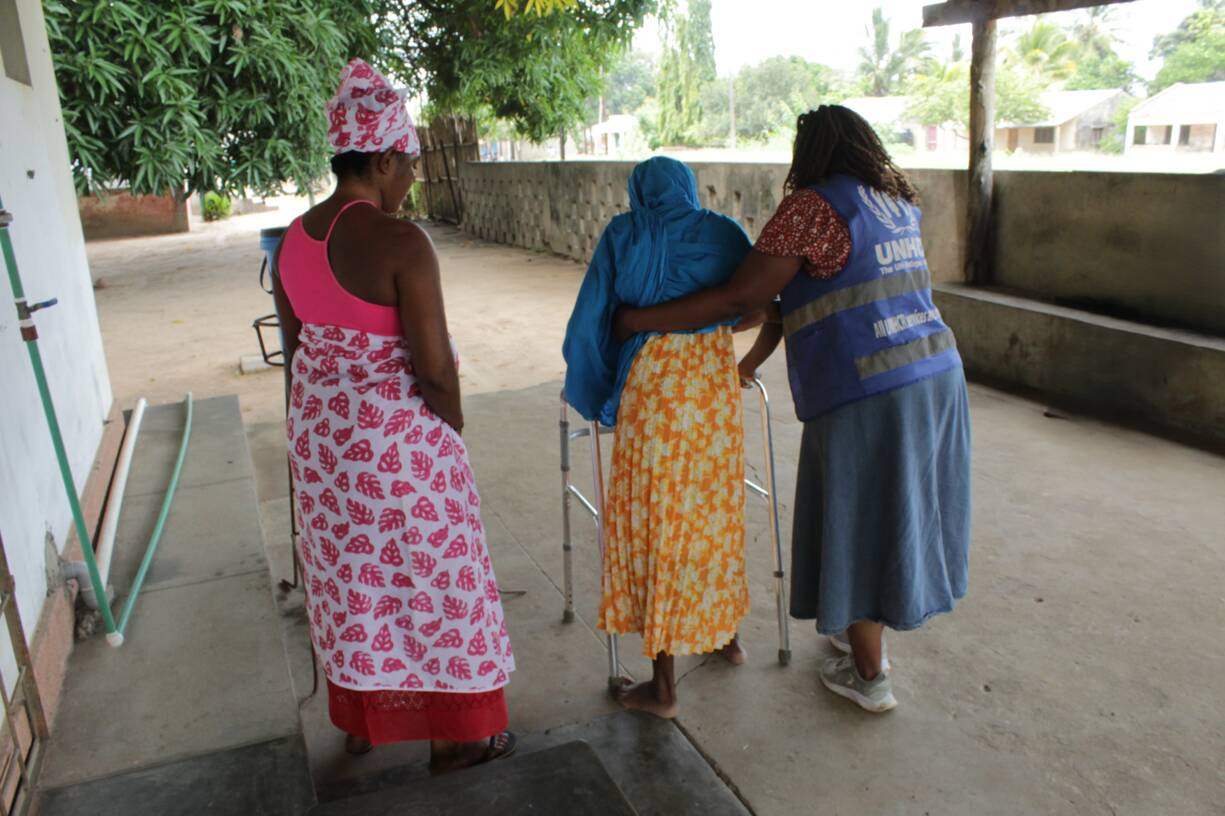
Returnees in Mocimboa da Praia receive support with assistive devices to help them rebuild their lives
©UNHCR/Isadora Zoni, 2025 -
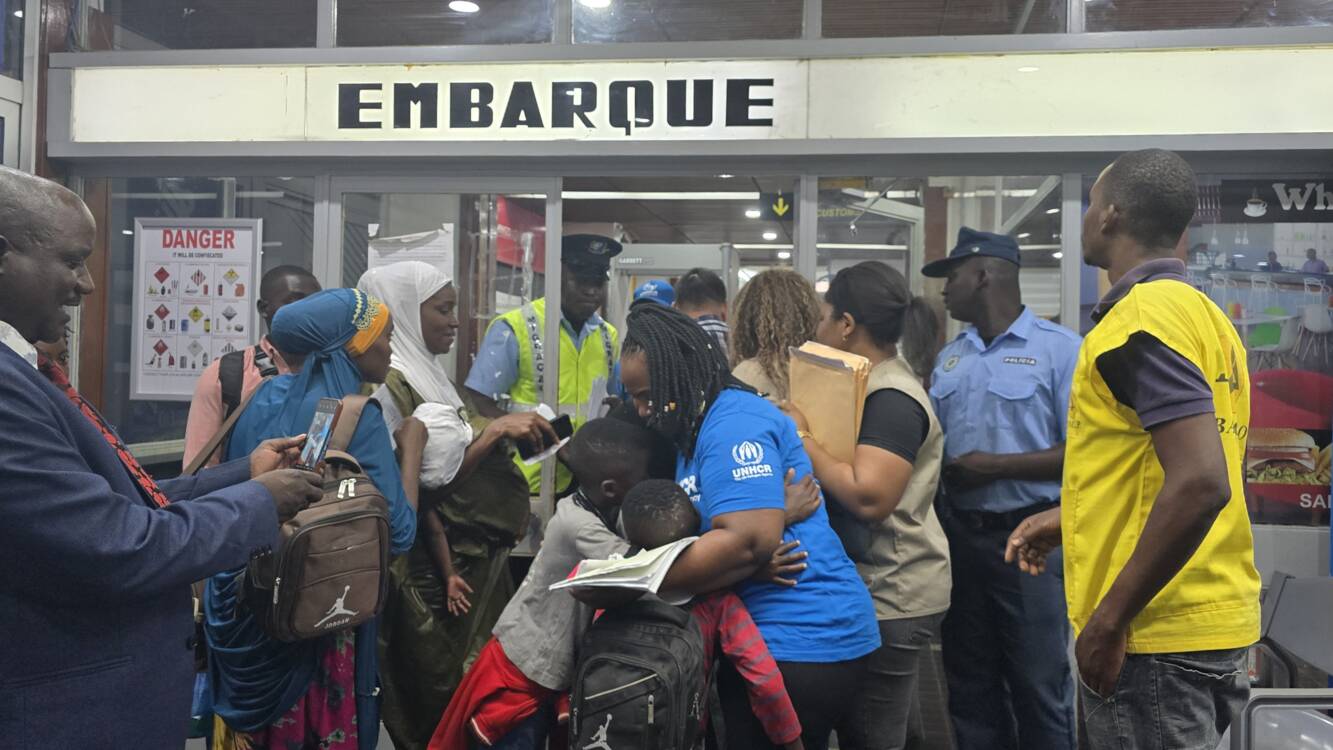
Burundian refugees choose voluntary repatriation and are supported by UNHCR in coordination with the authorities in both countries to ensure their protection
©UNHCR/Kazi Rainy, 2025 -
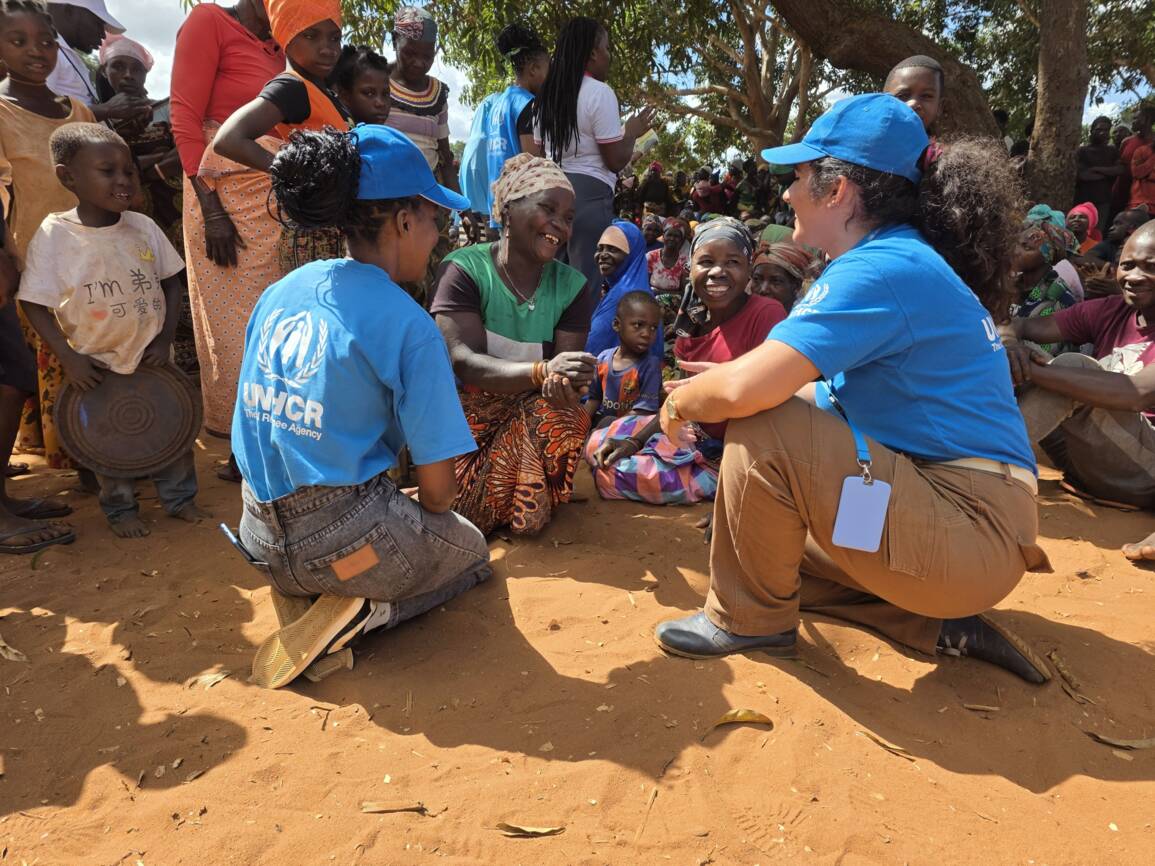
Community engagement for new IDP arrivals in Ancuabe, Cabo Delgado
©UNHCR, 2025 -
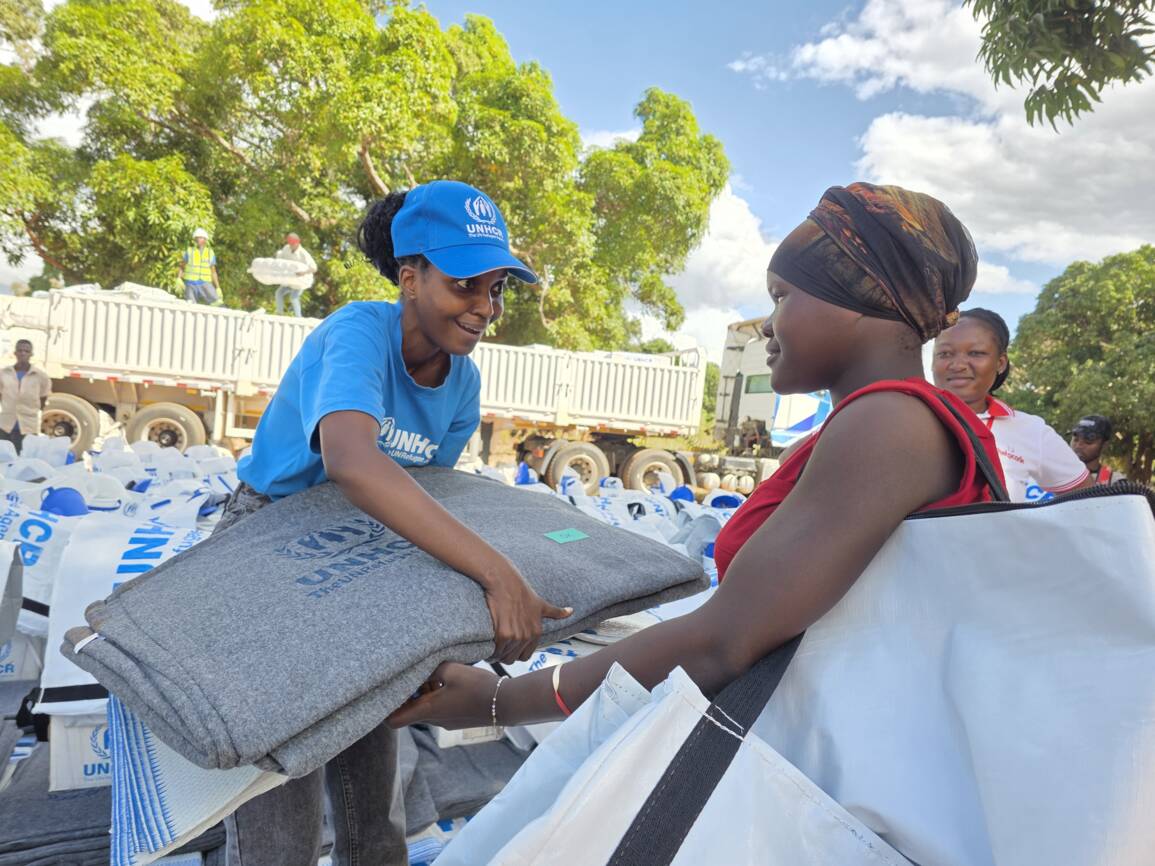
NFI distribution to newly displaced in Cabo Delgado seeks to ensure protection of the most vulnerable among the community
©UNHCR/Isadora Zoni, 2025 -
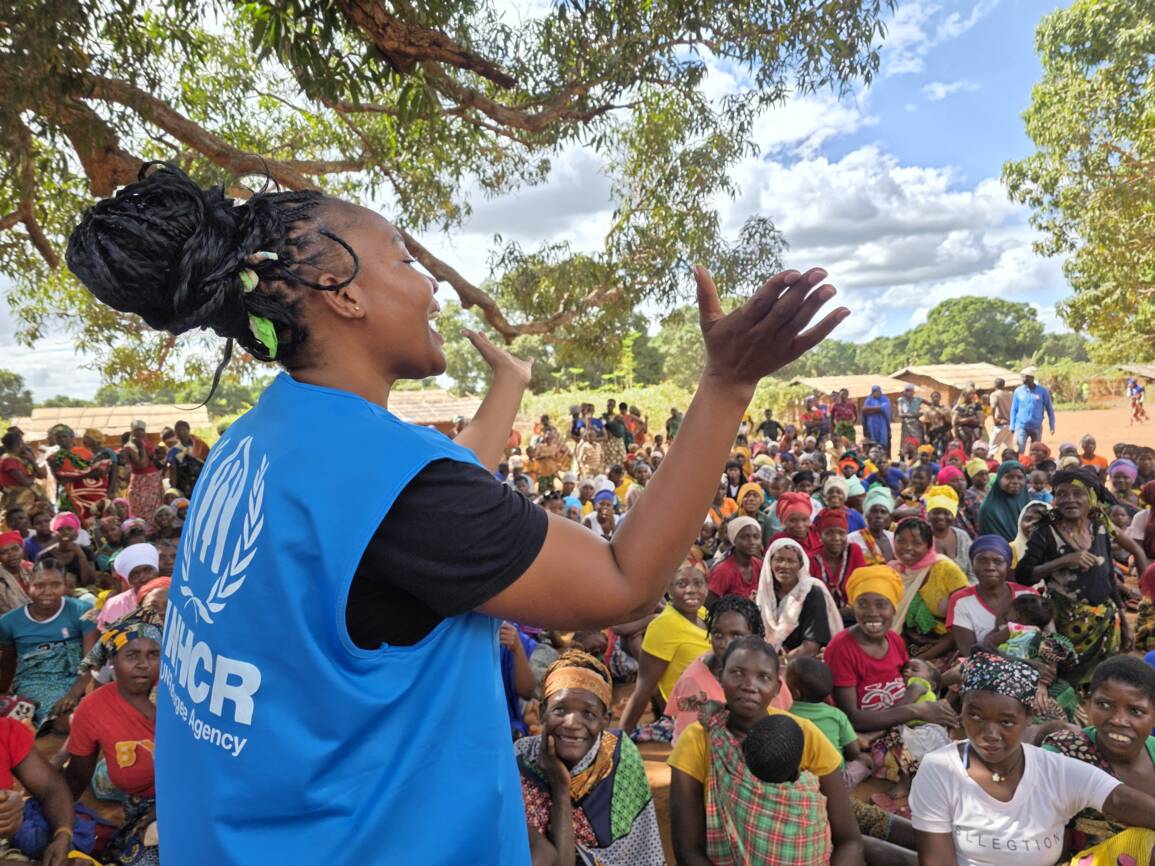
UNHCR conducts sensitization with communities on early marriages, GBV and pathways to services
©UNHCR/Isadora Zoni, 2025 -
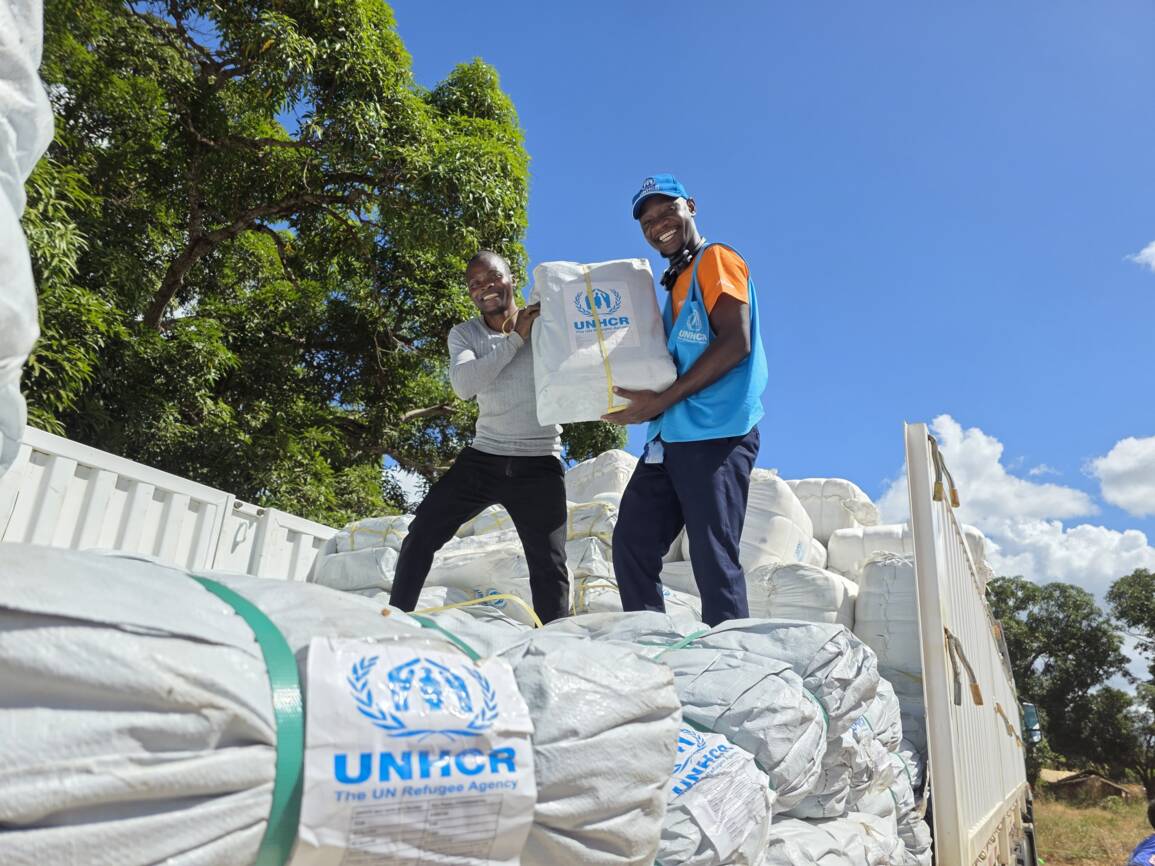
UNHCR supports newly displaced with NFIs, including blankets, tarpaulin, mosquito nets, sleeping mat, and bucket
©UNHCR/Isadora Zoni, 2025
